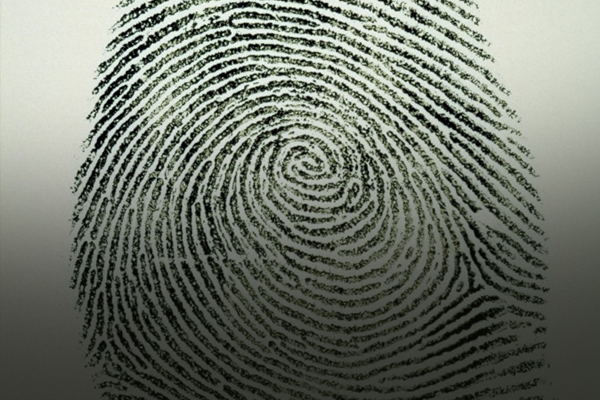
But did you notice that print evidence from the counter did nothing to confirm the specific actions of the suspect, beyond his contact with the surface? This corroborative evidence told us nothing about why he climbed the counter, nothing about his possession of a firearm, and nothing about his demand for money. While the fingerprints and shoeprint corroborate the statement of the eyewitness, they do so without establishing every possible detail. This is the nature of corroborative evidence; each piece addresses and verifies a “touchpoint”, a small aspect of the testimony that is sufficient to corroborate the larger account. Even if the prosecution had a video tape of the entire robbery, many aspects of the witness’ testimony would still be missing (like the audio portion of the crime, most likely). At some point, jurors have to trust what the witness has to say about the event. Corroborative evidence always verifies a limited range of witness claims.
This is also the case with the evidence that corroborates the witness testimony of the Gospel accounts. Skeptics often argue that corroboration of the Gospels is too limited, but the nature of the corroborative evidence shouldn’t surprise us. We should expect to find “touchpoint” corroboration; partial details that tend to corroborate the larger account. So when archaeology confirms some limited percentage of the geographic claims of the Gospels, this should be seen as a significant step toward corroboration. When a first century non-Christian author mentions some limited aspect of the Christian narrative, this should be seen as a significant step toward corroboration. When internal evidence (the correct description of proper names, government structure and cultural setting) substantiates some limited aspect of the Christian accounts, this should be seen as a significant step toward corroboration. And when all these corroborative evidences are considered in unison, this should be acknowledged as reasonable verification of the ancient accounts contained in the Gospels. Skeptics argue that corroboration of the Gospels is too limited, but the nature of the corroborative evidence shouldn’t surprise us. We should expect to find partial details that tend to corroborate the larger account. Click To Tweet
Corroborative evidence is always limited; it always addresses some small aspect of the event under consideration. Jurors then extrapolate from this corroboration to determine if the broader testimony is reliable. They do this after they assess the testimony with the three other questions I described in Cold Case Christianity (“Were the witnesses present?” “Were the witnesses accurate?” and “Were the witnesses biased?”). We can’t expect the corroborative evidence to establish every claim made by the witness. Instead, the corroborative evidence provides us with another important piece of the puzzle related to reliability. At some point, we then have to trust what the witnesses say about the event.

J. Warner Wallace is a Dateline featured Cold-Case Detective, Senior Fellow at the Colson Center for Christian Worldview, Adj. Professor of Christian Apologetics at Talbot School of Theology, Biola University, author of Cold-Case Christianity, God’s Crime Scene, and Forensic Faith, and creator of the Case Makers Academy for kids.
Subscribe to J. Warner’s Daily Email
J. Warner Wallace is a Dateline featured cold-case homicide detective, popular national speaker and best-selling author. He continues to consult on cold-case investigations while serving as a Senior Fellow at the Colson Center for Christian Worldview. He is also an Adj. Professor of Christian Apologetics at Talbot School of Theology, Biola University, and a faculty member at Summit Ministries. He holds a BA in Design (from CSULB), an MA in Architecture (from UCLA), and an MA in Theological Studies (from Gateway Seminary).

































Pingback: Does the Description of the Demoniac(s) Demonstrate a Dilemma? | Cold Case Christianity
Pingback: The First Question to Ask of an Ancient Holy Book: Is It Ancient? | Cold Case Christianity
Pingback: The Case for the Historicity and Deity of Jesus | When You Gather Blog
Pingback: The Case for the Historicity and Deity of Jesus | A disciple's study
Pingback: Unbelievable? Four Simple Principles to Determine Ancient Historical Reliability | Cold Case Christianity
Pingback: Unbelievable? Is Luke's Description of Quirinius Historically Inaccurate? - Cross Examined - Christian Apologetics | Frank Turek
Pingback: Unbelievable? Is Luke's Description of Quirinius Historically Inaccurate? | Cold Case Christianity
Pingback: Unbelievable? Is There Enough Evidence Beyond the Gospels to Make Their Testimony Reliable? | Cold Case Christianity
Pingback: The Comparatively Rich Archaeological Corroboration of the Old Testament | Cold Case Christianity
Pingback: Real Clear Apologetics | The Comparatively Rich Archaeological Corroboration of the Old Testament
Pingback: A Brief Sample of Old Testament Archaeological Corroboration | Cold Case Christianity
Pingback: Old Testament Archaeological Corroboration | Christian Apologetics
Pingback: Four Simple Principles to Determine Ancient Historical Reliability
Pingback: The Case for the Historicity and Deity of Jesus | Cold Case Christianity
Pingback: Unbelievable? Does Josephus’ Account of John the Baptist Invalidate the Gospels? | Cold Case Christianity
Pingback: The Case for the Reliability of the New Testament (Free Bible Insert) | Apologetics ForumApologetics Forum
Pingback: We Can Corroborate the Gospels without Verifying Every Detail | TLG Christian News
Pingback: Rapid Response: “The Gospels Are Unreliable” | TLG Christian News
Pingback: Who is Jesus? – Quickly Reminded
Pingback: The Case for the Historicity and Deity of Jesus | J Warner Wallace – Reasoned Cases for Christ